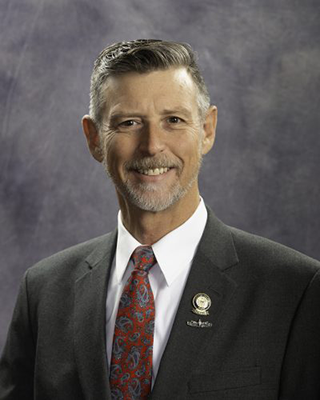Montana Voters, Not Party Bosses, Do Choose Our Leaders
State Rep. Tom Millett Wednesday, July 30th, 2025 9:48am
Recently, Representative Brad Barker (R-Red Lodge) wrote an article and circulated it around Montana criticizing the actions of a majority of the Republicans gathered at the Republican Party State Convention in June. In his article, Rep. Barker attempts to paint the Montana Republican Party and the Montana Freedom Caucus, as tyrants bent on usurping the will of the people and installing their preferred ‘leaders’ into positions of power in state government. This couldn’t be further from the truth.
First, Rep. Barker claims in his article that George Washington warned that political parties may “…become potent engines…to subvert the power of the people…” George Washington’s warning about political parties, though wise in its time, must be understood in context. He spoke from a place of deep concern over factionalism threatening national unity in the republic’s infancy. But more than two centuries later, parties have become an essential mechanism for organizing representative democracy, not a threat to it. While abuses can occur in any political system, parties, when functioning properly, are not “potent engines” of tyranny. They are the means by which voters organize around shared values, hold elected officials accountable, and create clear policy alternatives. Without party structure, our republic risks becoming a fragmented, personality-driven contest where unaccountable actors claim to represent “the people” without a consistent governing vision.
Next, Rep. Barker claims that the Montana Freedom Caucus led the effort at the state convention to purge public servants who refused to bow to party litmus tests. This criticism of the Montana GOP and the Montana Freedom Caucus in particular frames an internal party process as authoritarianism. But intra-party discipline and leadership accountability are not inherently undemocratic. When delegates, who are themselves elected representatives of grassroots activists, vote to replace leaders or enforce standards, that is representative democracy at work within a party structure. We must remember that a political party is a voluntary association with the right to define its identity and leadership criteria. If the party’s delegates choose to centralize vetting, enforce ideological coherence, or require oaths of loyalty to party values, they are not “silencing” voters, they are shaping the party that voters will evaluate at the ballot box. The voters remain free to reject any candidate, regardless of party endorsement.
In addition, Rep. Barker claims the Montana GOP platform diverges significantly from the national Republican platform. The tension between a broader national party platform and a more ideologically focused state party is not new. Every party has internal debates between moderates and purists. These disagreements reflect representative democracy in action and do not invalidate the process. If the Montana GOP is misaligned with its constituents, it will pay the price at the ballot box. That’s the ultimate test of whether its platform reflects the will of the people.
Further, Rep. Barker claims the oath public servants take is to the constitution and not to a political party. Montana's Constitution prohibits requiring any oath as a condition to hold public office beyond the one mandated, and rightly so. But political parties are private associations. A loyalty statement or commitment to uphold party principles is not a constitutional violation unless it becomes a legal requirement to hold public office, which it is not. Candidates who reject the party’s principles can still run, either independently or as members of other parties. That’s not authoritarianism; it’s political competition.
Our response to George Washington’s concerns should not be the abandonment of political parties but the ongoing effort to make them better reflect the people they serve. The notion that political parties are inherently corrupt or anti-democratic ignores the role they play in translating individual voices into collective action.
Elected officials should absolutely uphold their constitutional oath — but it’s not mutually exclusive with honoring the principles of the party that helped them get elected. In the political sphere, accountability runs in both directions: from elected officials to voters and from candidates to the party platforms they claim to represent.
Let’s respect that political parties, including the Montana Republican Party, have the right and duty to define their standards, debate their priorities, and evolve. That is not a betrayal of representative democracy but rather one of its essential expressions.
Tom Millett is a Republican state representative from Marion in NW Montana.

Flathead Weather
-
 Kalispell
KalispellSunny intervals
High: 36°F | Low: 25°F
-
 Whitefish
WhitefishSunny intervals
High: 36°F | Low: 21°F
-
 Columbia Falls
Columbia FallsSunny intervals
High: 36°F | Low: 21°F
-
 Glacier Park
Glacier ParkSunny intervals
High: 37°F | Low: 23°F
